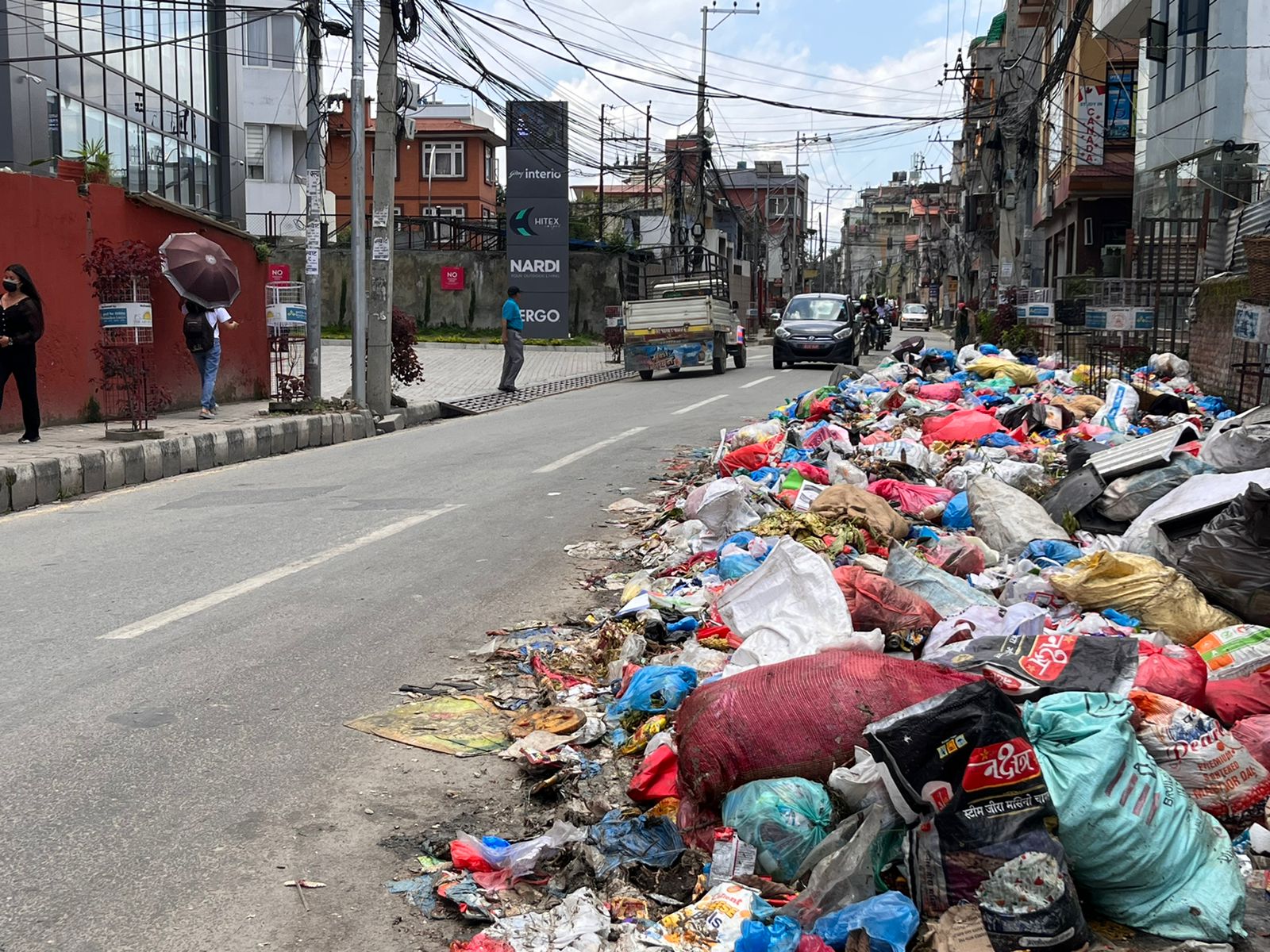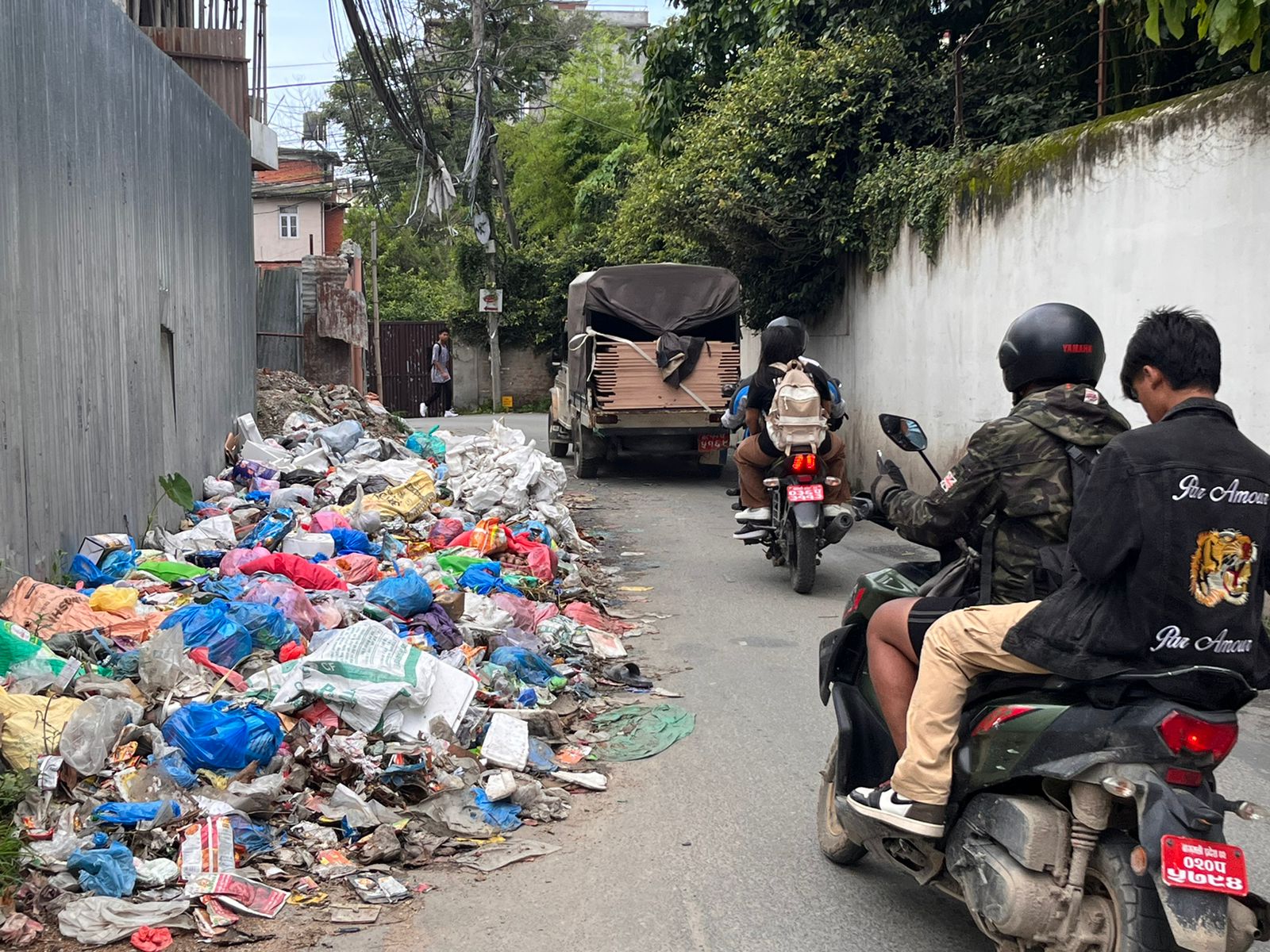Environment

Nearly a month after the new mayors took charge of municipalities in the capital Kathmandu, several streets continue to remain littered with piles of unattended garbage. And yet officials say “it could take weeks” before all the garbage could be cleared and transferred to the Banchare Danda landfill site, located 20 kilometres northwest of the capital.
What’s even more shocking is this: some of the garbage piles date back to February, 2022, when the trouble first started after members of the local community at Sisdol landfill near Banchare Danda intensified protests against “haphazard disposal” of the garbage in their neighbourhood, which caused foul stench and a public health crisis in the area.
“Garbage trucks have not been able to smoothly transport garbage since then,” Sarita Rai, the chief of Environment Department at Kathmandu Metropolitan City (KMC) told NepalMinute. At that time, she said, the locals had started stopping garbage trucks bound for Sisdole, which forced municipal authorities in Kathmandu valley to leave the piles of garbage where they lay.
New trouble
Now there’s a new trouble: officials are building a new road leading to Banchare Danda via the used-up landfill at Sisdol. “Since the road is under construction and the work is in progress most of the time, we have very little time limit to access to the landfill,” said Sunil Lamsal, an engineer at Mayor Balendra Shah’s Secretariat.
“That's why, we are not in a position to drive garbage trucks to the landfill all the time. We can do so only in the morning or afternoon.”
To speed up garbage removal from the streets, officials said, KMC recently added 25 more garbage trucks to its existing fleet of 100-plus, but less than half are currently allowed to the landfill site per day.
They indicated that “it could take several weeks more to remove all the garbage accumulated on the streets of the capital valley.”
New plans

KMC, which has announced plans to segregate the waste at source from July 17 (Shrawan 1), is currently engaged in the legal framework preparations and is planning to do a "soft start in co-ordination with private sector”, as per officials.
“We are hunting for lands to build a composting factory at various locations to put a permanent end to the problem,” said Lamsal, the engineer.
Kathmandu valley, home to nearly 5 million people living in 16 municipalities, generate over 1200 tonnes of garbage every day. But a lack of proper all-weather landfill site with no interruptions - plus scientific management of garbage by separating waste into biodegradables, recyclables and re-usable stuff - continues to force millions of people to live with the garbage.
Also Read: Balen Shah’s biggest challenge: Ending Kathmandu’s garbage crisis. Here’re possible solutions:






